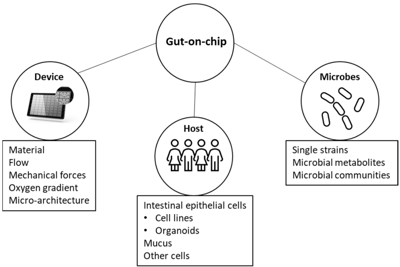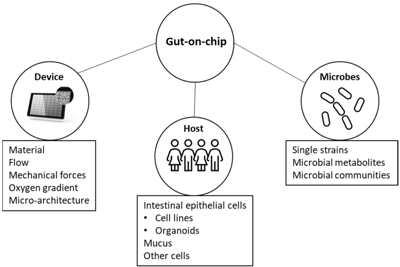Gut-on-a-Chip Models: Current and Future Perspectives for Host–Microbial Interactions Research

Leiden, February 24, 2023 – MIMETAS scientists shed light on the potential role of gut-on-a-chip models for studying host-microbial interactions in the context of intestinal physiology.

The intestinal microbiome has been implicated in various physiological and pathological processes, including nutrient absorption, drug metabolism, and protection against pathogens. Dysbiosis of the gut microbiota has been associated with several pathologies, such as inflammatory bowel disease, cancer, obesity, and diabetes. Although various models have been developed to study the functions of the intestine in health and disease, most in vitro models have failed to fully recapitulate the complex composition of the intestinal mucosa. This is mainly due to the difficulty of co-culturing anaerobic living microbes with oxygen-requiring epithelial cells, as well as the rapid microbial overgrowth in static culture conditions.
Recent advances in microfluidic platforms have enabled the development of more sophisticated models for studying host-microbial interactions in the gut. These models include organoids and gut-on-a-chip, which have the potential to revolutionize our understanding of the gut microbiome and its role in health and disease and pave the way for the development of new therapeutic strategies.
The review provides a list of studies using microfluidic platforms to co-culture host and microbial cells and discusses the main findings and key parameters to consider in the development of such models. The review also examines the advantages, limitations, and future potential of these models in better understanding intestinal physiology. Overall, this publication highlights the need for more sophisticated models to study the functions of the gut microbiome in health and disease. The use of microfluidic platforms such as organoids and gut-on-a-chip represents a promising approach to address this challenge and provide new insights into the role of the gut microbiome in health and disease.
